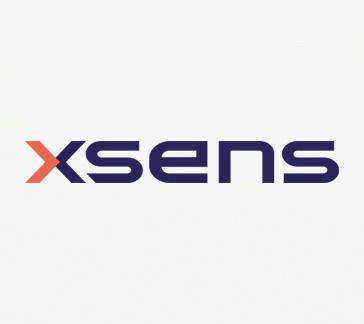How A Miniature GNSS/INS Enabled Hydrosta To Create The First Auto-pilot For Small Boats




Leo Stam, managing director of marine technology manufacturer Hydrosta of Zwartsluis in The Netherlands, is proof that a combination of a sense of curiosity and profound knowledge of customer needs can lead to exciting innovations. The profound knowledge is born of decades of service to the thriving Dutch boat manufacturing and servicing industry. Hydrosta was actually founded in 1976 by Leo Stam's father, who put part of his family name into the name of his new marine propulsion systems company.
Hydrosta grew to become The Netherlands’ leading supplier of hydraulics propulsion and steering systems to boatyards in its own country and beyond, its success buoyed by the company’s willingness to share with all customers its engineering expertise and its experience of implementing hydraulics technology in marine applications.
Leo Stam’s work supporting boatyards in hundreds of builds led him to a new insight. Semiconductor technology had already transformed the computing industry: data processing capability which was once found only in huge mainframes run by large organizations was by the 1990s on desks in offices and in homes throughout the world in small personal computers. Leo Stam’s curiosity was piqued: could the auto-pilot systems found only in huge commercial ships such as cruise liners and oil tankers be miniaturized as well as made affordable if they were based on semiconductor technology, he wondered?
His research led him to the XSENS range of solid-state (semiconductor-based) motion sensors, which are now at the heart of Hydrosta’s NAVIO Autopilot product, a Dynamic Positioning System (DPS) for small and medium-sized boats.

The NAVIO Autopilot control switch
Tiny sensor produces accurate heading and inertial measurements
When Leo Stam started developing the NAVIO product, the auto-pilot feature was only found in large, normally sea-going vessels. It depended on a mechanical gyroscope, the main element of which was a large flywheel. This type of device was far too large and heavy to be used in the 10m-25m boats which Hydrosta’s customers build.
The Xsens family of industrial Motion Trackers (MTis) offered the perfect alternative. Xsens MTis integrate a three-axis accelerometer, gyroscope and magnetometer plus a barometer into a single small, light package. Today, Hydrosta uses the MTi-670 in its NAVIO Auto-Pilot: the MTi-670, an Inertial Navigation System (INS) with an interface to an external GNSS satellite positioning receiver, measures just 32mm x 28mm x 13mm (L x W x H).
In the NAVIO Autopilot DPS, the MTi-670 provides a stream of accurate data about the vessel’s heading and velocity, as well as position data that is generated by the external GNSS receiver and filtered through sensor fusion with the IMU data. The MTi-670’s outputs are used by the intelligent NAVIO controller for error correction and stabilization of the GNSS receiver’s outputs, and particularly to smooth and correct the heading information derived from the satellite positioning signals.

The NAVIO Autopilot unit mounted in a cockpit
Because the MTi-670 also provides inertial navigation outputs, the NAVIO Auto-Pilot system can use it to maintain steering by dead reckoning when a GNSS signal is unavailable, for instance when sailing under a bridge.
Finally, the MTi-670’s accurate accelerometer and gyroscope outputs enable precise stabilization of the vessel when the NAVIO is operated in station-keeping mode.
Leo Stam says: ‘The skipper of a small patrol boat is no different to the captain of a huge supertanker: they want navigation and steering of the boat to be easy, convenient and accurate. Before we created the NAVIO system, that was not possible in patrol boats, leisure boats and the other types of smaller vessels that were already using Hydrosta propulsion systems. The NAVIO system of intelligent controls really revolutionized the market for smaller vessels, and it was only possible because orientation and speed could for the first time be measured by a tiny electronic sensor. So it is thanks to Xsens and its MTi-Series of motion sensors that we were able to create this new market for auto-pilot systems in small boats. And I’m happy to say that still, years after the first NAVIO Autopilot product was introduced, we are using an Xsens MTi-Series motion sensor to provide the vital pitch, roll, yaw and velocity data which the navigation system relies on.’
- |
- +1 赞 0
- 收藏
- 评论 2
本文由越努力越幸运转载自Xsens,原文标题为:How A Miniature GNSS/INS Enabled Hydrosta To Create The First Auto-pilot For Small Boats,本站所有转载文章系出于传递更多信息之目的,且明确注明来源,不希望被转载的媒体或个人可与我们联系,我们将立即进行删除处理。
相关推荐
【应用】Xsens 惯性导航系统MTi-670助力NAVIO自动驾驶仪DPS,提供有关船舶航向和速度的准确数据流
在NAVIO自动驾驶仪DPS中,Xsens MTi-670提供了有关船舶航向和速度的准确数据流,以及由外部GNSS接收器生成并通过传感器与IMU数据融合过滤的位置数据。智能NAVIO控制器将MTi-670的输出用于纠错和稳定GNSS接收器的输出,尤其是用于平滑和校正从卫星定位信号得出的航向信息。
应用方案 发布时间 : 2021-01-15
【应用】Xsens MVNLink动捕套装助力陆地冲浪滑板运动研究
来自上海体育大学多名学生受邀做口头报告并分享各自的研究成果,获得了来自世界各地专家学者的认可和赞誉。其中王少白教授指导的赵璇同学所汇报的“Xsens对陆地冲浪滑板运动研究”从上百名汇报者中脱颖而出,经过层层筛选后获得优秀口头汇报奖。Xsens传感器以其准确可靠的数据与报告和便携性,在国内外众多高校的研究与创新开发中都发挥了作用。
应用方案 发布时间 : 2023-09-01
【视频】Xsens精度高至厘米级的惯性导航定位传感器在ADAS中的应用
在汽车电子&无人驾驶及新能源汽车与新材料专场世强在线研讨会中,Xsens技术专家为我们做了演讲。Xsens的惯性测量单元(IMU)产品,精度最高可达厘米级,集成等级可选IMU、VRU、AHRS、GNSS/INS(+RTK),配合强大传感器融合软件算法,高精定位,完美适用于自动驾驶及ADAS领域应用,助力行业发展。
应用方案 发布时间 : 2020-09-25
Xsens IMU惯性测量传感器选型指南
目录- IMU
型号- MTI-1,MTI-2,MTI-600,MTI-300,MTI-7,MTI-100,MTI-200,MTI-G-710,MTI-3,MTI-680,MTI-670,MTI-610,MTI-620,MTI-630
XSENS MTi系列MEMS惯性传感器选型指南
描述- Xsens是3D运动追踪技术和产品的主要创新者,其传感器融合技术可应用于消费电子设备和专业应用,诸如运动捕捉、运动分析、医疗保健、体育和工业等应用中,实现现实世界和数字世界之间的无缝交互。
型号- MTI 100-系列,MTI 1-系列,MTI-G-710,MTI 1系列,MTI 600系列,MTI 600,MTI-670,MTI 1,MTI-610,MTI-630,MTI 100,MTI-1,MTI-680G,MTI,MTI-2,MTI-670G,MTI-7,MTI系列,MTI-3,MTI 600-系列,MTI-680,MTI-200,MTI-100,MTI 100系列,MTI-620,MTI-300
Mocap Freedom: How Xsens Solved the ‘Out-of-Range’ Challenge
Inertial motion capture has transformed the way we capture movement, enabling artists, creators and other users to break free from the limitations of studios and complicated setups. With on-body sensors and wireless connectivity, actors can move and express freely. However, there’s always the fear of going out of range.
技术探讨 发布时间 : 2024-07-08
【经验】如何使用MT Manager查看Xsens IMU惯性测量传感器MTi发送的16进制信息?
XSENS的IMU惯性测量传感器MTi 1系列、MTi 10系列等都在使用 “XBus协议”,如果要使用常见的IIC、SPI等数字通信与MT通信,那么理解XBus协议十分重要。本文将介绍如何使用MT Manager查看Xsens MTi设备发送的16进制信息。
设计经验 发布时间 : 2022-10-02
Height Tracking with Xsens Motion Capture
Xsens motion capture is based on inertial technology, meaning the technology is in the suit and you do not need external input, like cameras. The big advantage is that you can just jump in the suit and start capturing anywhere you like. Inertial motion capture also has downsides, like height tracking, or multi-level. The inertial sensors measure orientation, speed, and heading. But they cannot measure height.
原厂动态 发布时间 : 2024-07-06
MTi 600-series IMU | VRU | AHRS | (RTK-) GNSS/INS
型号- MTI 600-SERIES,MTI-680G,MTI 600,MTI-670,MTI-610,MTI-620,MTI-630
General information for Xsens MTi series MTi Family Reference Manual
型号- MTI 600-SERIES,MTI SERIES,MTI-G-710,MTI-670,MTI-610,MTI-630,MTI 10-SERIES,MTI-30,MTI-10,MTI-680G,MTI-1,MTI,MTI-2,MTI-7,MTI 1-SERIES,MTI 100-SERIES,MTI-3,MTX,MTW,MTI-200,MTI-100,MTI-G,MTI-620,MTI-300,MTI-20
Mocap Without Limits - How Xsens Solved the Drift Dilemma
Through this journey, we have faced and overcome numerous technical challenges. While no technology is without flaw, we strive to make our motion capture system as close to perfect as possible.
原厂动态 发布时间 : 2024-06-28
MTi 600-series Hardware Integration Manual
型号- MTI 600-SERIES,MTI-680G,MTI-670-DK,MTI-630-DK,MTI-670,MTI-600,MTI-680G SK,MTI-630,MTI 1-SERIES
现货市场






































































































































































































登录 | 立即注册
提交评论